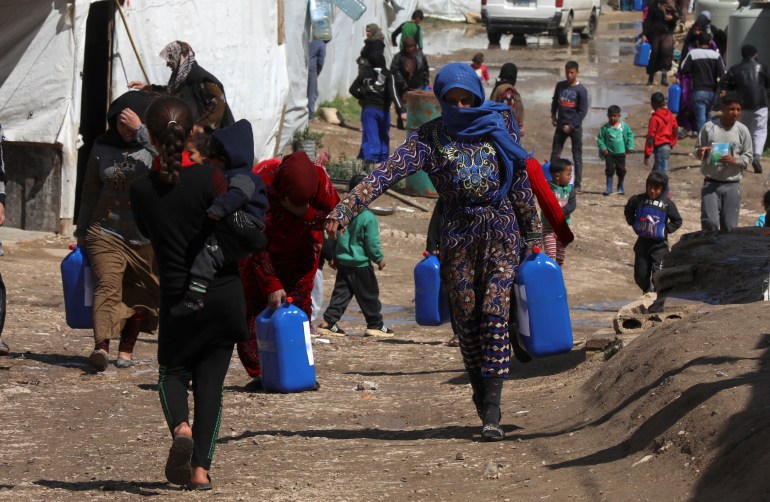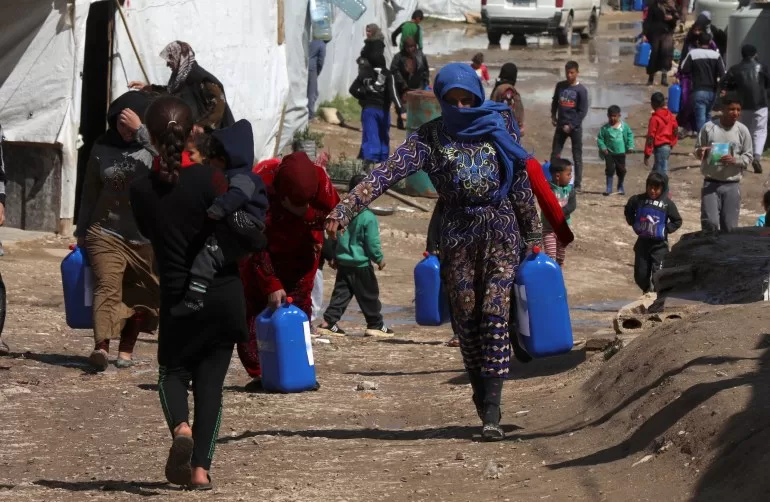A day earlier, the Lebanese army had announced the abduction and murder of Pascal Sleiman, a local official for the influential Christian political party, the Lebanese Forces. Authorities pointedly identified the suspects as Syrian.
While Lebanese Forces leadership floated the possibility of a political assassination, vigilantes turned their ire on Syrian refugees. The ensuing mob violence swiftly found its way to Hussein’s doorstep in the Christian-dominated East Beirut neighbourhood of Geitawi.
“Some guys had broken open the door and messed up my stuff,” Hussein recalled. “I interpreted it as them saying: ‘We are here.’”
Hussein’s neighbour came to his defence when his home was attacked, telling him that he had confronted four young men and sent them away before they wreaked more havoc. While thankful for his neighbour’s loyalty, Hussein – a resident of Geitawi for 10 years – no longer sees the area the same way.
“It’s hard for me to accept that everyone around me is potentially an enemy.”
Tensions had already been mounting against Syrians for weeks before Sleiman’s killing.
Since March, a national advertising campaign has called on the international community to “undo the damage” caused by the continued presence of displaced Syrians in Lebanon. Widely reported crimes like the recent murder of an elderly East Beirut resident – committed, local media outlets reported, by Syrian burglars – stoked more public anger against Syrian refugees. And there had been many reports of mob violence against Syrians, particularly in predominantly Christian areas.
Anti-Syrian sentiments in Lebanon go far back.
Some still revile Damascus’s military intervention in the Lebanese civil war (1975-1990) and subsequent occupation of Lebanon until 2005 – at times unable, or unwilling, to distinguish between the past regime and present refugees.

In October 2019, with the onset of Lebanon’s unprecedented economic crisis, more Lebanese – often following their political leaders’ example – started blaming the country’s financial collapse on the burden of hosting more than 1.5 million Syrian refugees.
In the aftermath of Sleiman’s murder, prominent Lebanese from across sectarian lines swiftly decried the presence of Syrian refugees in Lebanon.
Bassam Mawlawi, the caretaker interior minister, called for fewer Syrians in Lebanon, while Minister of Social Affairs Hector Hajjar said any Lebanese person describing all Syrians as refugees was a “criminal conspirator” against the state.
Earlier in April, caretaker Prime Minister Najib Mikati said nothing united the Lebanese more than the “issue of displaced Syrians”. He also said most of the refugees would be repatriated once the international community recognises “secure zones” in Syria for them, despite the ongoing war in Syria and the persistence of a regime millions of Syrians have fled.
Political incitement, once unleashed, can prove hard to rein in. “When [political parties] use political violence, their supporters translate that into physical violence,” observed Hussein.
For now, this latest bout of anti-Syrian violence has seemingly eased, as it did after similar waves in the past. But the threat of even more widespread clashes remains.
“Violence and deportations have largely affected the working class, but more middle-class youth have also been targeted. That’s precisely what makes this moment so dangerous: The spread of lawless violence will affect everyone,” said Alex Simon, research director of Synaps, a Beirut-based research organisation.
It does not help matters that Lebanon’s security forces, which would need to quell such a violent conflict, find themselves under-resourced and overstretched during the economic crisis.
